
"Laid" is the title song from Manchester alternative rock band James's fifth studio album, Laid (1993). Released on 1 November 1993, the song was a commercial success, charting in the United Kingdom, Australia, and the United States, and has received attention as a theme song for the American Pie film series.

"Secret Love" is a song by musical group the Bee Gees. It was released as the lead single from their 19th studio album, High Civilization (1991), on 18 February 1991. It is an up-tempo song with a Supremes style similar to the 1986 Diana Ross hit "Chain Reaction", which was also written by the Bee Gees. The single reached the top 10 in several European countries but was not released as a single in the United States.
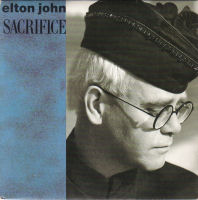
"Sacrifice" is a song by English musician Elton John, written by John and Bernie Taupin, from John's 22nd studio album, Sleeping with the Past (1989). It was first released in October 1989 as the second single from the album. It achieved success in 1990, particularly in France and the United Kingdom, becoming John's first solo chart-topper in both nations. The song describes how hard it is to stay faithful and devoted in a marriage, challenging the mantra that a successful union requires sacrifice. Due to the song's success, John has played this song in various locations in the years since it was released.

"Going Out" is the first single from English rock band Supergrass's second studio album, In It for the Money (1997). It was released on 26 February 1996, more than a year before the album, and reached five on the UK Singles Chart and number 20 on the Irish Singles Chart. The song was apparently originally written in the key of E because the engine of Supergrass' tour bus would tick at that same musical pitch.
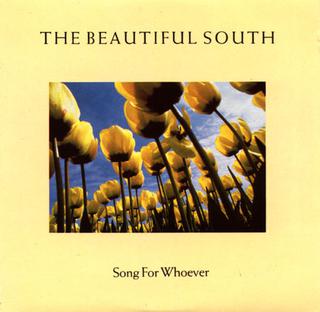
"Song for Whoever" is a song by English music group the Beautiful South, written by band members Paul Heaton and David Rotheray. The first and highest-charting single from their debut album, Welcome to the Beautiful South, it peaked at number two on the UK Singles Chart in July 1989 and was certified Silver by the British Phonographic Industry (BPI). Considered typical of the band's gently subversive, self-reflexive signature style, it is sung from the point of view of a cynical songwriter who romances women solely to get material for love songs.

"You Keep It All In" is the second single released from English pop rock group the Beautiful South's debut album, Welcome to the Beautiful South (1989). It reached number eight on the UK Singles Chart in October 1989 and number three in Ireland. "You Keep It All In" was also a hit on American alternative rock radio, peaking at number 19 on the Billboard Modern Rock Tracks chart in early 1990.

"Sowing the Seeds of Love" is a song by English pop rock band Tears for Fears. It was released in August 1989 as the first single from their third studio album, The Seeds of Love (1989).

"Shake Your Head" is a song by American pop rock group Was. It was originally released in 1983 on the album Born to Laugh at Tornadoes. In 1992, it was re-recorded and remixed by house music producer Steve "Silk" Hurley, and features actress Kim Basinger alongside a re-recorded Ozzy Osbourne on vocals. It appears on the group's compilation album, Hello Dad... I'm in Jail.

"Dream of Me (Based on Love's Theme)" is a song by English electronic band Orchestral Manoeuvres in the Dark (OMD), released as the second single from their ninth studio album, Liberator (1993). The song uses a sample from "Love's Theme", a 1973 instrumental piece recorded by Barry White's Love Unlimited Orchestra. It was remixed by Gregg Jackman for release as a single and reached the top 30 in Belgium, the Netherlands, and the United Kingdom.

"Love Train" is a song by English singer Holly Johnson, released in 1989 as the lead single from his debut solo album, Blast (1989). It was written by Johnson and produced by Andy Richards and Steve Lovell with additional production by Stephen Hague. The song reached No. 4 in the United Kingdom, spending 11 weeks on the chart, and was certified silver by British Phonographic Industry (BPI) in February 1989. In the United States, the song reached No. 65 on the Billboard Hot 100.

"Winter" is a song by Scottish band Love and Money, which was released in 1991 as the third and final single from their third studio album Dogs in the Traffic. The song was written by James Grant and produced by Steve Nye. "Winter" reached No. 52 in the UK Singles Chart and remained in the Top 100 for two weeks.
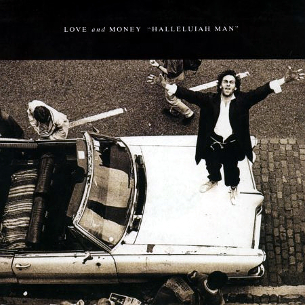
"Halleluiah Man" is a song by Scottish band Love and Money, which was released in 1988 as the lead single from their second studio album Strange Kind of Love. The song was written by James Grant and produced by Gary Katz. "Halleluiah Man" reached No. 63 in the UK Singles Chart and No. 75 on the US Billboard Hot 100.
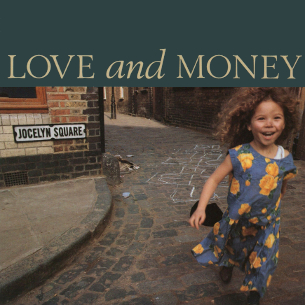
"Jocelyn Square" is a song by Scottish band Love and Money, which was released in 1989 as the third single from their second studio album Strange Kind of Love. The song was written by James Grant and Bobby Paterson, and produced by Gary Katz. "Jocelyn Square" reached No. 51 in the UK Singles Chart and remained in the Top 100 for four weeks.
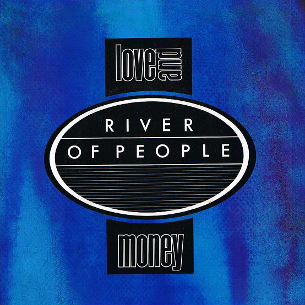
"River of People" is a song by Scottish band Love and Money, which was released in 1987 as the third single from their debut studio album All You Need Is.... The song was written by James Grant and Bobby Paterson, and produced by Tom Dowd. "River of People" reached No. 82 in the UK Singles Chart and remained in the Top 100 for four weeks.

"I Don't Know Why I Love You" is a song from English alternative rock band the House of Love, which was released by Fontana in the UK in 1989 as the second single from their second studio album The House of Love (1990). The song was written by Guy Chadwick, and produced by Stephen Hague and Dave Meegan. "I Don't Know Why I Love You" peaked at number 41 in the UK Singles Chart.

Strange Kind of Love is the second studio album by Scottish band Love and Money, released in 1988.
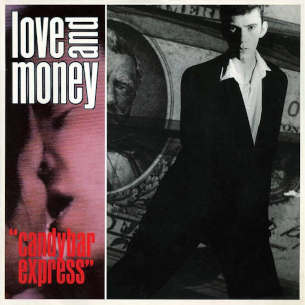
"Candybar Express" is a song by Scottish band Love and Money, which was released in 1986 as the debut single from their debut studio album All You Need Is.... The song was written by James Grant and produced by Andy Taylor. "Candybar Express" reached number 56 in the UK Singles Chart and number 10 on the Billboard Hot Dance/Disco Club Play chart.

"Strange Kind of Love" is a song by Scottish band Love and Money, which was released in 1989 as the second single from their second studio album Strange Kind of Love. The song was written by James Grant and produced by Gary Katz. "Strange Kind of Love" reached number 45 in the UK Singles Chart and remained in the top 100 for five weeks.

"No Blue Skies" is the debut solo single by English singer, songwriter and musician Lloyd Cole, released in 1990 from his self-titled studio album. The song was written by Cole and produced by Cole, Fred Maher and Paul Hardiman. It peaked at number 42 in the UK Singles Chart and remained in the top 100 for four weeks. Cole has described "No Blue Skies" as "very simple" and a "girl leaves boy or boy leave girl" song.

"My Love Lives in a Dead House" is a song by Scottish band Love and Money, released in 1991 as the lead single from their third studio album Dogs in the Traffic. The song was written by James Grant and produced by Steve Nye.




















